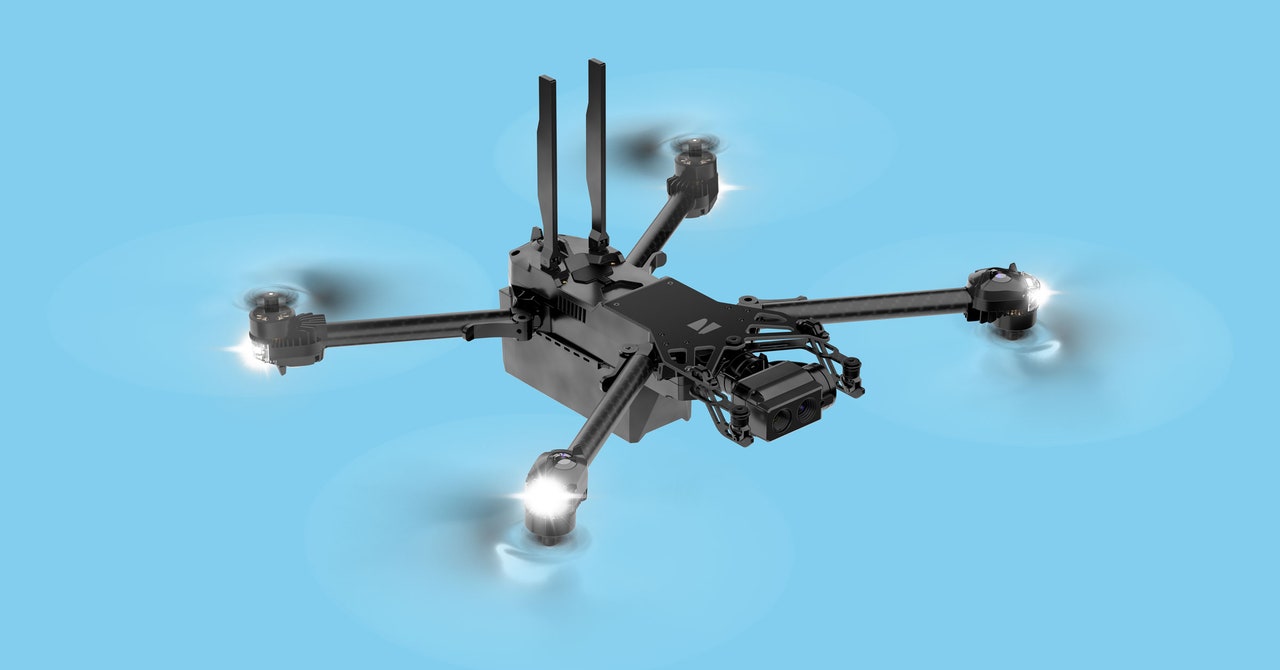These being pandemic times, a recent visit to the Silicon Valley offices of drone startup Skydio involved slipping past dumpsters into the deserted yard behind the company’s loading dock. Moments later, a black quadcopter eased out of the large open door, sounding like a large and determined wasp.
Skydio is best known for its “selfie drones,” which use onboard artificial intelligence to automatically follow and film a person, whether they’re running through a forest or backcountry skiing. The most recent model, released last fall, costs $999. The larger and more severe-looking machine that greeted WIRED has similar autonomous flying skills but aims to expand the startup’s technology beyond selfies into business and government work, including the military.
Skydio’s plans show how the conflict between the US and China over technology can create unexpected openings for American companies. Skydio’s work with the US government is being buoyed by growing opposition from government officials to its most powerful competitor and the world’s dominant drone maker, China’s DJI.
New regulations and proposed legislation restrict government agencies from buying foreign drones, claiming they are a potential conduit for cyberattacks. Skydio is happy to fill the void. “We feel a sense of opportunity, and responsibility,” says Adam Bry, Skydio’s CEO and a founder of Google’s drone delivery project. His company recently won a contract with the Drug Enforcement Agency and is vying to become the Army’s standard-issue short-range surveillance drone to help infantry peek over the next hill or look around corners in urban combat.
The government interest and protection come on the heels of a slump in the US drone industry. Investors hoping for sales in industries such as agriculture and energy plowed money into drone startups in the early 2010s as the Federal Aviation Administration gradually allowed broader use of the technology. Uptake was slower than anticipated, and drones turned out to be similar to other portable electronics—made more efficiently in China.
DJI’s market share soared while prominent US drone makers crashed. In 2016, 3D Robotics, which has raised more than $180 million, according to Pitchbook, and was cofounded by a former WIRED editor in chief, stopped manufacturing its own drones. It later started supplying software to run on DJI’s instead. In 2018, Airware, a San Francisco drone startup, which had raised more than $100 million in funding, shut down. Analytics company Drone Industry Insights says DJI’s products now account for 77 percent of drones in the US, citing FAA figures.
DJI has since gotten snared in growing US–China hostilities over technology. Late last year the Department of Justice recommended its agencies be wary of foreign drones. T

